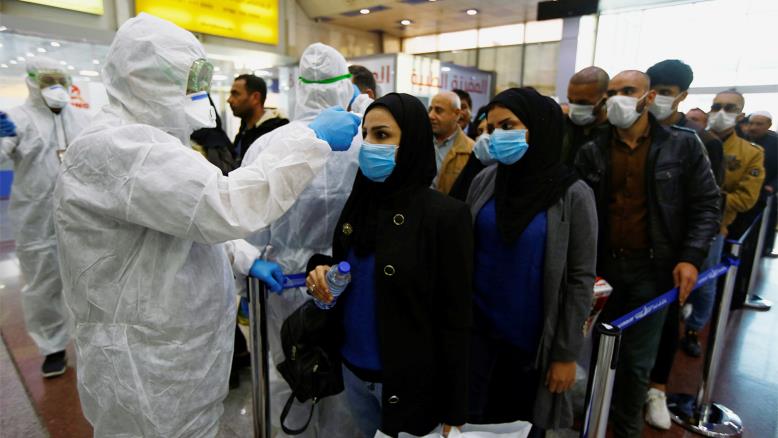WHO dismisses claims Iraq is deliberately underreporting COVID-19 cases; Reuters stands by its reporting

ERBIL (Kurdistan 24) – The World Health Organization (WHO) has disputed claims that the Iraqi government might be deliberately underreporting coronavirus cases in a statement released on the day after Reuters cited anonymous doctors and officials who said the government had confirmed as many as 9,000 infections but has not publicized it.
Related Article: Iraq suspends Reuters’ license over coronavirus reporting
“WHO has been closely monitoring and evaluating COVID-19 laboratory results since the beginning of the spread of the virus in Iraq, and dismisses the prospect that the government is deliberately hiding or falsifying the results,” a statement from the United Nations Assistance Mission to Iraq (UNAMI) said on Friday.
The UN did note, however, “In Iraq, as elsewhere, underreporting of COVID-19 cases is inevitable, due to factors such as fear, cultural issues including stigmatization, undocumented asymptomatic patients, lack of active surveillance and limited testing.”
“Many infected individuals only seek medical treatment in advanced stages of the disease. This not only increases the spread of the virus, but also inflates the reported death ratio.”
The Reuters report came on Thursday, citing three doctors involved in testing people for COVID-19, a health ministry official, and a senior political official, claiming that the number of cases announced by authorities are far higher than those reported.
The doctors are part of teams testing suspected coronavirus carriers, Reuters wrote. Each gave estimates between 3,000 to 9,000 COVID-19 cases as being closer to the actual number. The ministry official told the agency that there were 2,000 cases in eastern Baghdad alone.
Iraq’s latest public data finds a total of 878 confirmed cases, with 56 deaths and 259 recoveries nationwide. The number of infections that the Health Ministry has reported has increased steadily, averaging close to 50 new cases daily. The statistics include data from the Kurdistan Region, which compiles its own data independently and then reports figures to the federal government in Baghdad.
On Friday, Iraq’s Media and Communications Commission suspended Reuters’ working license in the country for three months, demanded a public apology, and issued a $21,000 fine on the news agency.
“Reuters dealing with the Iraqi situation in this way threatens societal security and impedes major government efforts in combating the spread of the coronavirus, and a paints a negative image of the Crisis Cell,” the commission claimed.
Iraq’s Crisis Cell, a government body formed to coordinate the national response, has taken a series of measures to contain the disease after it first entered the country through those traveling from neighboring Iran, the regional epicenter of the disease.
Much of the travel between Iraq and Iran is made by those visiting sites holy in Shia Islam.
The body imposed a curfew in mid-March across all provinces except those in the Kurdistan Region, where the regional government had already put a strict one in place. Shortly after the federal government announced the lockdown, Iraqi authorities did not block thousands of pilgrims from amassing in crowds at a shrine in Baghdad on a religious holiday despite the dire public health risk it posed.
Read More: Iraq slams curfew violations in Baghdad as coronavirus cases reach 192
Reuters Stands by its Reporting
“We have not received notification from any Iraqi authorities regarding our license and are currently seeking clarification on the matter,” the agency said in a statement released on Saturday.
It added, “We stand by our story of April 2, which was based on multiple, well-placed medical and political sources, and also fully represented the position of the Iraqi health ministry.”
“Reuters will continue to report on Iraq in a fair, independent and impartial way, as we do all around the world.”
Worldwide, the coronavirus has infected nearly 1.2 million people and killed over 64,000, according to government-reported data compiled by Johns Hopkins University.
Editing by John J. Catherine
